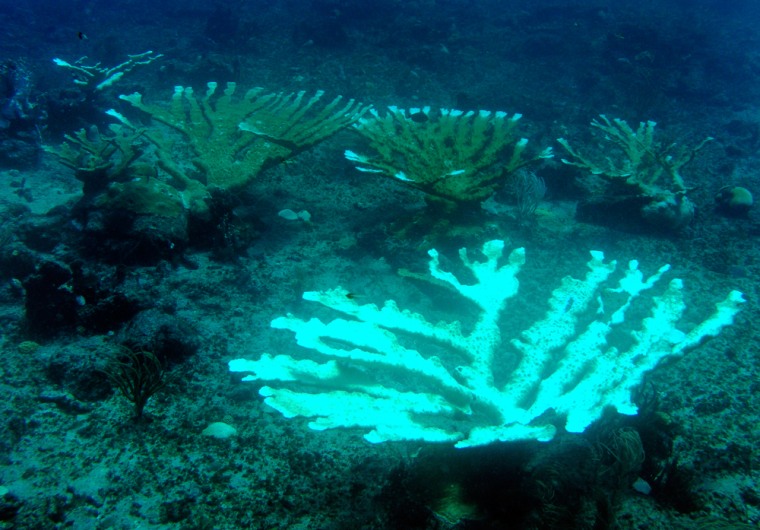Governments are failing to stem a rapid decline in biodiversity that is now threatening extinction for almost half the world's coral reef species, a third of amphibians and a quarter of mammals, the world's premier conservation watchdog warned Thursday.
"We now know better than ever before that the prognosis for species across the planet is dire," the International Union for Conservation of Nature said in a 155-page report that describes the past five years of a losing battle to protect species, natural habitats and geographical regions from the devastating effects of man.
IUCN, the producer of the world's Red List of Threatened Species, analyzed its 2008 list of 44,838 species to test government pledges earlier this decade to halt a global loss in biodiversity by 2010.
That target will not be met, the Gland, Switzerland-based body said, describing the prospects of coral reefs as the most alarming. It also said slightly more amphibians, mammals and birds were in peril compared to five years ago, with species most prized by humans for food or medicine as disproportionately threatened.
"Biodiversity continues to decline and next year no one will dispute that," said Jean-Christophe Vie, the report's senior editor. "It's happening everywhere."
'Nature is the largest company'
Vie said biodiversity threats need to be highlighted and dealt with, even at a time when many world leaders are preoccupied by economic recession and financial instability. Unlike markets and debts, animal extinction is an irreversible element of today's "wildlife crisis."
"It’s time to recognize that nature is the largest company on Earth working for the benefit of 100 percent of humankind — and it’s doing it for free," Vie said. "Governments should put as much effort, if not more, into saving nature as they do into saving economic and financial sectors."
He urged governments to usher in major changes to society, such as reducing energy and overall consumption, redesigning cities and reassessing the environmental consequences of globalization — producing goods in one part of the world and sending them thousands of miles to be sold.
IUCN said climate change only threatened to make the situation worse.
"A significant proportion of species that are currently not threatened with extinction are susceptible to climate change," it stated. "This includes 30 percent of non-threatened birds, 51 percent of non-threatened corals and 41 percent of non-threatened amphibians."
Biodiversity pledge made in 2002
Governments pledged in 2002 at a meeting of the U.N. Biodiversity Convention and the World Summit on Sustainable Development to halt biodiversity decline by the end of the decade. European governments have set a similar goal among themselves.
In Europe, "about 50 percent of species are under threat or vulnerable," said Barbara Helfferich, a European Union spokeswoman. "Habitats are shrinking and a lot needs to be done. We are doing a lot, but it's not enough as promised to halt biodiversity loss."
Helfferich said a report last year suggested a number of steps for European governments to better protect biodiversity. They included expanding conservation sites, cutting down on overfishing, expanding protection to marine environments and better incorporating ecological concerns in government decisions.
